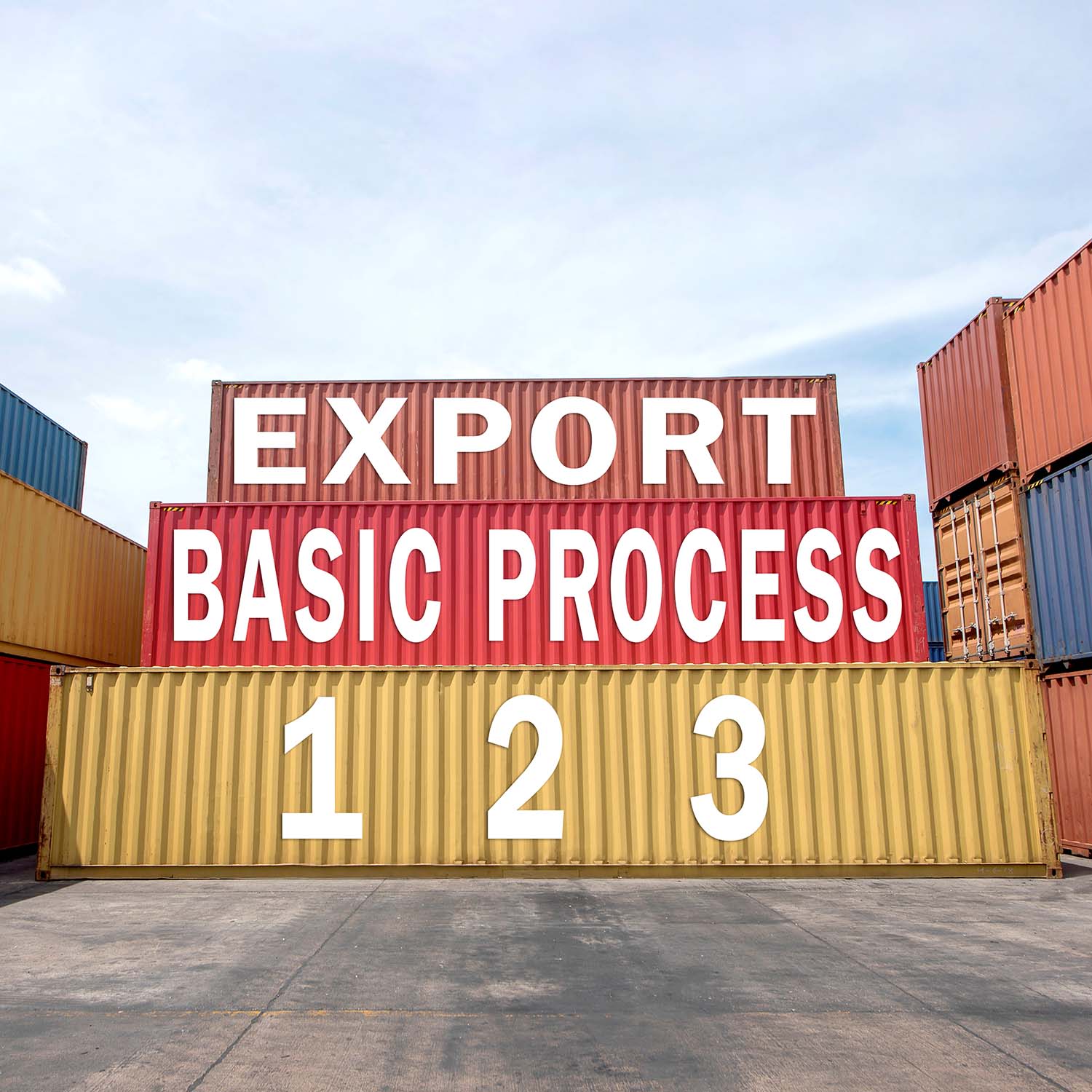Export: Basic Process
Export Protocol
The customs authority in India is known as the Central Board of Indirect Taxes and Customs.
Documentation Package
The exporter or its agent submits a documentation package consisting of either a Shipping Bill or a Bill of Export and other supporting documents to the Central Board of Indirect Taxes and Customs.
A Shipping Bill is used for customs processing at seaports; a Bill of Export is used at Land Customs Stations (the 132 stations along India's borders with Pakistan, China, Nepal, Bhutan, Myanmar, Afghanistan and Bangladesh).
The submission can be made manually or electronically. See Electronic Filing Below.
Documentation Review
Customs reviews the documentation to check for:
- Authority of the entity to export
- Consistency of information across documents
- Legality of the proposed export
- Proper product classification
Customs also:
- Establishes whether to order an inspection of the shipment
- Computes duties, taxes, and other fees
- Refers documentation to other governmental agencies for exports of controlled products
- Establishes any special requirements for final clearance of the shipment
Most exporters engage the services of a logistics firm or a customs broker to handle export documentation and procedures.
Time to File
The Export Declaration and supporting documents must be filed in the customs office of export before the shipment is released for export.
Electronic Filing
An exporter or its agent can file the Export Declaration through ICEGATE, the Central Board of Indirect Taxes and Customs’ Electronic Data Interchange (EDI) Processing portal. For further information or to file electronically go to https://www.icegate.gov.in.
Export License, Commodity Clearance, Certificate of Exemption
Export license(s) and/or commodity clearance(s) may be required for certain restricted articles. A certificate of exemption may be obtained for certain prohibited, banned, or controlled articles. See the Restricted and Prohibited page for additional information.
Export Documentation
All exports of physical articles require the following basic documentation:
- Shipping Bill or Bill of Export
- Certificate of Origin (CoO)
- Packing List (P/L)
- Freight Document: Bill of Lading (B/L), Air Waybill (AWB), Rail Waybill, or Road Waybill
- Pro Forma or Commercial Invoice (CI)
Some exports may require additional documentation:
- Insurance Document
- Export Licenses, Permits, Certifications
- Documents as may be requested/required by the subsequent importer
- Documents as may be required by the terms of a bank letter of credit (L/C) or documents against payment (D/P) provision
Restricted and Prohibited Articles
The export of restricted and prohibited articles may require an export clearance from the government agency that regulates that article. Restricted articles include certain arms and armaments, certain technology products, plants, animals, food products, natural resource products, currency, and radioactive materials. A certificate of exemption may be obtained for certain prohibited, banned, or controlled articles. Prohibited articles include certain plants and animals, especially those of endangered species. See the Restricted and Prohibited page for further information.
Inspection
Customs processes the Import Declaration and checks the following:
- Value and classification of goods is done under the drawback schedule in case of drawback shipping bills
- Export duty, if applicable
- Advance License shipping bills are checked to ensure that description in the invoice and final product specified in the Advance License is similar. After visual inspection or testing, samples may be drawn and assessment may be done if required.
- Exportability of articles under Export Import (EXIM) Policy and other laws: Some exports are completely prohibited under various acts. For instance, items restricted or prohibited under Foreign Trade (Regulation) Act: antiques, art treasures, arms, narcotics, etc. Some items like tea, coffee, and coir products can be exported only under authorization/license.
At the point of export, Customs examines the import shipment to ensure that:
- Prohibited articles are not exported
- Articles tally with description and invoice
- Duty drawback is correctly claimed, if applicable
Payment of Duties and Taxes
Articles to be exported are released once all taxes and duties are paid or secured to be paid. For articles that require value verification, appraisal, or classification in order to determine the amount of duty and taxes payable, such articles will be cleared by Customs only after the exporter has discharged the obligation to pay assessed duties and taxes.
Export Regimes
The proposed export of certain arms, armaments, dual-use technology, and nuclear materials and equipment are likely to be covered by one or more Multilateral Export Control Regime. World Trade Press recommends consulting with logistics and legal specialists for more information.
Clearance and Release of Shipment
Once any necessary inspection is completed; all duties, taxes, and other fees are paid; and no discrepancies or problems arise with the Export Declaration or the shipment to be exported, customs releases the shipment for export. Once permission to export is granted, the exporter has an obligation to ensure that the shipment is exported.
The vessel or aircraft that delivers the export shipment cannot leave the customs station without Customs’ written order. Such an order is issued only after:
- Submission of export manifest
- Submission of Shipping Bills or Bills of Export and Bills of Transshipment
- Duties on stores consumed are paid or payment of the same is secured
- No penalty is levied
- Applicable export duties are paid
Export Support
The Central Board of Indirect Taxes and Customs provides an electronic Customs Duty Calculator on its website. For more information or to calculate your import or export duty go to www.icegate.gov.in/Webappl.
For more information contact the Central Board of Indirect Taxes and Customs.
Note: The above information is subject to change. Importers and exporters are advised to obtain the most current information from a customs broker, freight forwarder, logistics professionals, or local customs authorities.
Article written for World Trade Press by Taylor Holloran and Lorenzo Paran.
Copyright © 1993—2025 World Trade Press. All rights reserved.

 India
India 